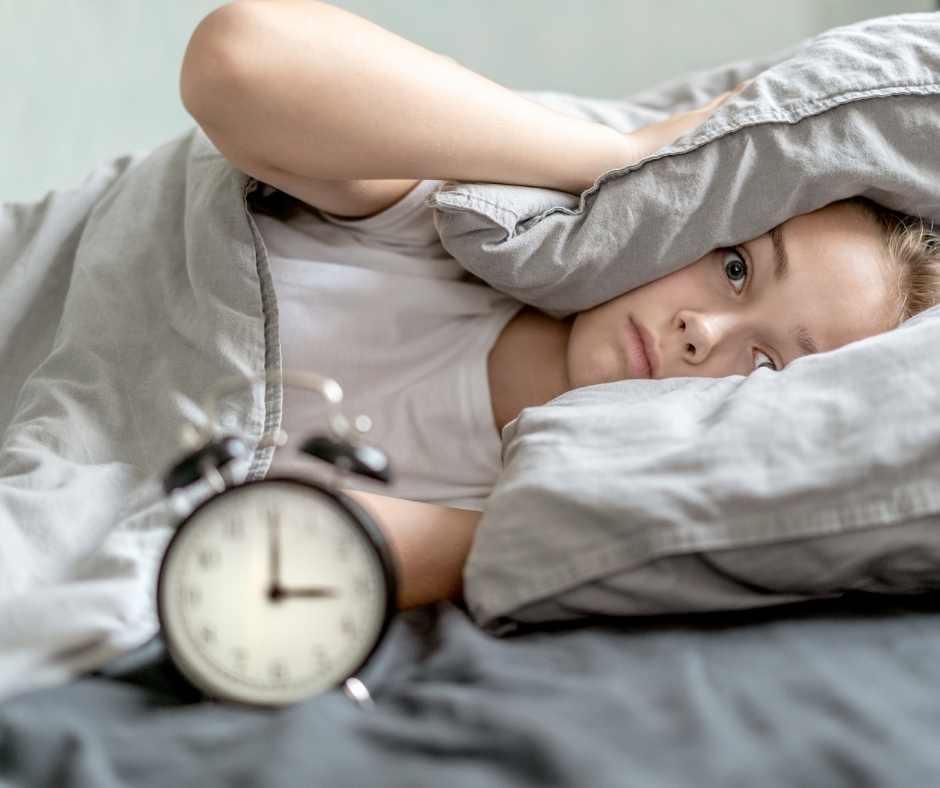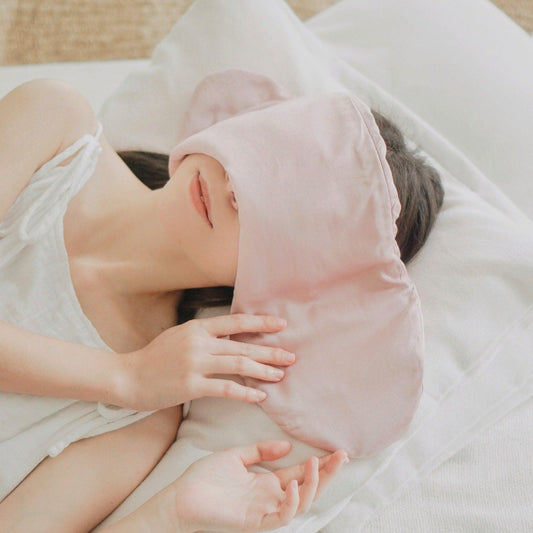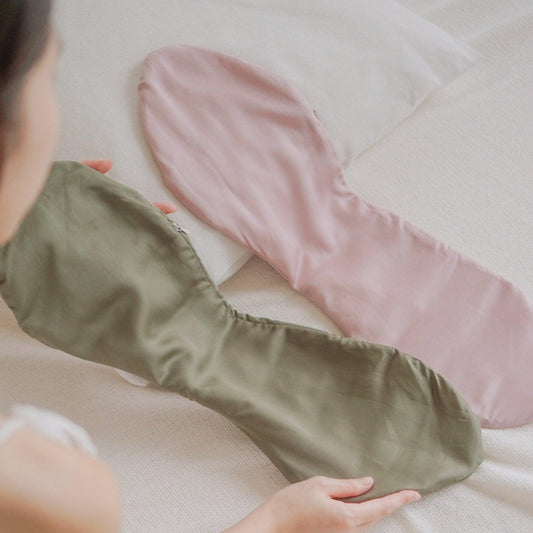
How to Overcome Sleep Anxiety Naturally
Share
We all know what it's like to feel anxious about something. Whether it's a big presentation at work or a first date, anxiety is a normal and even healthy feeling. But for some people, anxiety can be a constant, overwhelming feeling that interferes with their daily lives.
For these people, there's such a thing as sleep anxiety.
Sleep anxiety is a type of performance anxiety. It involves worrying about not being able to fall asleep or waking up in the middle of the night and not being able to go back to sleep. This can lead to sleepless nights, which can then lead to fatigue and other problems during the day.
The good news is that there are ways to overcome sleep disorders. In this article, we'll introduce you to some of the most effective ones. So, if you're ready to get a good night's rest, read on!
Causes of Sleep Anxiety
It's no secret that anxiety can lead to serious sleep problems. But what you may not know is that anxiety can also be caused by sleep problems! It's a vicious cycle that can be tough to break out of.
There are a number of factors that can cause anxiety and sleep problems. Some of the most common are:
- Stress: This is one of the most common causes of anxiety and sleep problems. When you're stressed, your body is in a constant state of "fight or flight". This makes it hard to relax and fall asleep.
- Poor Sleep habits: Not getting enough quality sleep can lead to anxiety. This is because your body isn't getting the rest it needs to function properly.
- Caffeine: Caffeine is a stimulant that can make it harder to fall asleep. It can also lead to more anxiety.
- Alcohol: Alcohol makes you sleepy, but it disrupts your sleep cycle and can cause anxiety.
If you struggle with anxiety and sleep problems, there are some things you can do to help ease your symptoms. Some self-care tips include:
- Practice relaxation techniques such as yoga or meditation.
- Avoid caffeine and alcohol before bed.
- Establish a regular sleep schedule and stick to it as much as possible.
- Avoid watching TV or working on the computer in bed.
Symptoms of Sleep Anxiety
There are a number of different symptoms of sleep anxiety. If you experience any of the following symptoms, it may be time to seek professional help:
- Waking up in the middle of the night and can't get back to sleep
- Worrying about not being able to sleep
- Feeling anxious or stressed about sleeping
- Taking longer than 30 minutes to fall asleep
- Waking up frequently during the night
How to overcome sleep anxiety naturally
There are natural solutions to sleep disorders that can help you get the rest you need.
Relaxation techniques
If you can't turn off your mind at night, it's difficult to find the rest you need. You toss and turn or lie awake for hours and can't fall asleep.
There are a number of things you can do to help alleviate your insomnia and get the rest you need. One natural solution is to use a weighted sleep mask.
Sleepfolio's Snugged weighted sleep masks are filled with tiny glass beads that put pressure on your forehead, temples and ears. This can help relax the whole body and reduce anxiety.
Try a weighted sleep mask if you struggle with insomnia. It's a simple, natural solution that can help you get the restful sleep you need!
Lifestyle Changes
Some simple lifestyle changes can also help reduce sleep disturbances. One of the most important things you can do is create a regular sleep schedule and stick to it as much as possible. This means going to bed and getting up at the same time every day, even on weekends.
It's also important to create a relaxing sleep routine that helps you wind down before bed. This can include taking a warm bath, reading a book, or listening to soothing music.
Finally, make sure your bedroom is conducive to sleep by keeping it dark, quiet and cool. If you're having trouble sleeping, don't hesitate to ask a doctor for help. With the right treatment, you can overcome your sleep disorder and find the restful sleep you deserve.
Essential Oil
Lavender oil is one of the most popular essential oils used for relaxation and sleep. The scent of lavender is very soothing and can help calm your mind and body before bedtime.
There are several ways to use lavender oil for sleep. You can add a few drops of lavender oil to your pillowcase, diffuser, or bath tub. You can also make a lavender sleeping ointment by mixing lavender oil with coconut oil and beeswax.
When using lavender oil for the first time, it's always best to start with a small amount and increase as needed. It's also important to know that everyone reacts differently to essential oils, so what works for one person may not work for another.
Herbs
There are a number of herbs that can be helpful for anxiety and sleep disorders. Passionflower, chamomile and lavender are good choices. You can take them in capsule form or make a tea from them. Be sure to talk to your doctor before taking any herbs, as they may interact with medications you may be taking.
If you're struggling with anxiety and sleep problems, don't give up hope. There are natural solutions that can help you find the rest you need. Talk to your doctor about what works best for you, and try some of these techniques.





